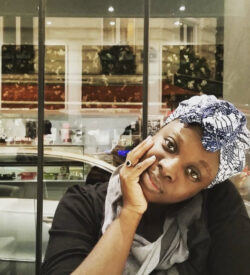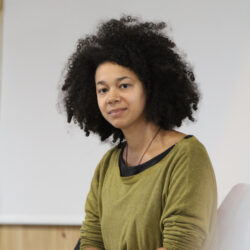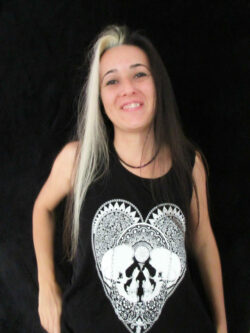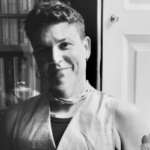deepening transformative training practice – working with power, complexity and solidarity in activist learning spaces.
This training is for people already working as trainers who want to deepen their understanding and skill in navigating power and rank dynamics and embodying deeper solidarity within their training spaces.
The course will explore the personal, interpersonal, and systemic dimensions of power and how they shape the experience of learning and collaboration. It will look at the different ways power manifests and dynamics related to different kinds of power. It will examine how systems of oppression and privilege appear within our movements and training spaces, and support the development of capacities to hold tension and complexity, nurture solidarity, and build trust and transformation.
As activist trainers and group members, we are likely aware of the ways that training spaces reflect the wider systems in which we live. Oppression and privilege can show up explicitly and obviously, and also subtly – in group dynamics, in facilitation choices, or even simply in how we respond to tension. This course offers a space to explore these realities, experiences and patterns with honesty and rigour, and to practice finding ways of holding power in transformative, grounded, enabling and relational ways.
Together we’ll reflect on how we navigate our influence as trainers – how we shift between initiating, accompanying, and witnessing. We’ll look at how we use our rank and influence responsively, in service to our group’s purpose. We’ll explore how to support groups to move beyond guilt, blame, and shame dynamics – towards greater understanding, responsibility, and solidarity.
Through experiential learning, reflection, and peer exchange, participants will work with frameworks of power and identity to better recognise how intersecting dimensions of privilege and marginalisation show up in groups and in ourselves. We’ll explore the different ways in which power manifests, addressing and unpicking dynamics related to different kinds of power – structural, contextual, economic, cultural etc. We’ll apply tools and analytical models for analysing group dynamics, introducing training skills needed to navigate and work with power skilfully in its different manifestations.
The course will also focus on building emotional literacy and resilience, cultivating the ability to stay present with conflict and complexity, and strengthening the skills needed to centre positive values rather than reactive patterns when working with oppression.
Using case studies from participants’ own experiences, we will practice approaches to working with tension and difference, explore what supportive structures can sustain this kind of work, and reflect on how to find nourishing, long-term motivation for engaging with power and solidarity as core elements of transformative training.
The course will foster a peer-to-peer learning community of trainers – a supportive space to share practice, test approaches, and deepen collective understanding of how to create more equitable, resilient, and transformative learning environments.
Aims of the course:
So, the workshop will help participants to:
Who is it aimed at?
This training is for people already working as trainers. It is designed for experienced facilitators with a background in social movements or political education who want to take their practice further.
In general our trainings are aimed at people involved in socially engaged action addressing ecological, political and social justice issues. We embrace a broad definition of activism, including: Resistance – action preventing further damage to ecosystems and social justice; Renewal – action focused on developing and creating alternatives for healthier societies and communities; and Building Resilience – action supporting increased resilience in communities to weather the uncertain times ahead.
The main spoken language on the course will be English.
For accessibility and venue information see here.
In the solidarity economy:
(See details of our approach to radical economics here)
Contact us
to apply

Location:
Binta wears many hats – educator, facilitator, organizer, activist, social entrepreneur, and mental health advocate – in support of community-led initiatives focused on social and climate justice. She has 10+ years experience working internationally on issues related to digital literacy, educational, social, and economic inclusion of marginalized communities, capacity and community building, and intercultural communication. In addition to organizing and working with anti-racist and feminist organizations in France, her current work focuses on helping movements structure and grow their impact, training youth leaders and activists in campaigning, community building and mobilization, and building networks of peer learning, support, and empowerment for marginalized communities.

Location:
Aurélia is a trainer specialising in active solidarity and group dynamics work. She is interested in systems thinking and body based approaches to training as well.
Aurélia’s background is in humanitarian work – working on power dynamics within affected communities and between communities and humanitarian NGOs. Aurélia is part of a collective in the South-West of France that aims at creating alternative economic system, based on local currency and universal income, she is also a member of NonViolent Global Liberation – an online community striving for individual and collective liberation. What drives Aurélia in her training work is seeing how learning and experimenting in group allows for deep and significant realisation & healing, and increases capacity to act and implement changes.

Location:
Hilal Demir, an anarcha-queer DJing at home is an activist, trainer, facilitator for 20 + years and has experience on organizing, strategizing on nonviolent direct action, campaign and social movement levels, working with power, active solidarity, resilience, repression and security. She is passionate about leading informal learning experiences, community organizing, group dynamics and organisational cultures, supporting activists and organizations to build long lasting transformative social movements for a just future.

Location:
Ilaj’s background is in grassroots organising, involving them in various strands of social movement work for nearly two decades, mostly in Eastern and Southern Europe. In more recent years, they have turned their attention to broader European movement building as part of the Ulex core team, where they design programmes, coordinate training teams and facilitate on a wide range of training courses. Ilaj is an experienced trainer with a broad range of skills, particularly in holding space for collective exploration of burnout, weathering repression, navigating trauma and cultivating solidarity in social movements. They are passionate about working with body awareness as a radical means of deconstructing internalised systems of oppression. They have been exploring the intersection between transformative somatics and political organising for a number of years.

Location:
An Maeyens (she/her) is a facilitator and trainer with over two decades of experience in grassroots movements. She specialises in creative, inclusive agenda design and brings deep expertise on group culture, power dynamics, and transformative learning. Starting of in the anti-globalisation movement she has trained thousands in civil disobedience, supported international coalitions, and developed multilingual training programmes and toolkits. Her work spans movements, cultures, and countries, guided by a commitment to care, accessibility, and leaderful organising.

Location:
Ari’s activism began in 2002, at age 16, as a Bosnian refugee in Canada, where they founded and coordinated a group for LGBTIQ high school students and allies. They were a co-founder and leader at kolekTIRV in Croatia and Trans Network Balkan, involved in community organizing, advocacy, program management, team coordination, capacity building, education, media work, campaigns, events, fundraising, etc. In 2024, they joined the Supervisory Board of the Croatian Trade Union Collective of United Precarious Workers and Activists (SKUPA).
Beyond the Balkan region, Ari served as a Board member at Transgender Europe (TGEU), where they held roles as Secretary, Treasurer, and later Co-chair. They have also been a trainer with the Center for Artistic Activism and served on the Advisory Committee and since 2022 as a Community Care Facilitator at FRIDA — The Young Feminist Fund. Since 2024 they are the Operations Manager at Global Philanthropy Project.

Location:
Sergio (all pronouns) was born in Romania and migrated to Germany in the early 2010s. In the past, he was a social worker with homeless people and a social consultant for Eastern European migrants for various organisations. Trained as a filmmaker, he spent two years making a documentary about the ‘civic reawakening’ in Romania and the waves of protest it brought with it. In connection to this, Sergio is currently co-steering the development of an online open-source participative knowledge production platform on activism in Romania. Over the past nine years, Sergiu has offered his skills to various journalists, grassroots collectives and campaigns, mostly working within the labour rights, climate justice, international solidarity and anti-authoritarian movements in Germany and Romania. Nonetheless, his biggest focus since 2020 has been his work as an organiser with the anarcho-syndicalist Free Workers Union, where he focuses mostly on organising Romanian migrant workers on construction sites, in factories and in the agricultural field.

Location:
Linzy Na Nakorn is a movement director, politicised somatics practitioner, community organiser and facilitator. For the past decade she has been facilitating movement, body work and creating theatre, dance and participatory performance that advocates for and organises with communities in pursuit of housing, disability and racial justice. Her movement practice focuses on trauma-informed approaches to building resilience, capacity and joy via way of the body for personal, interpersonal and community sustainability. Linzy was a Co-Director of The Big Ride for Palestine in partnership with The Gaza Sunbirds, Native Woman Ride and Middle East Children’s Alliance; using cycling as a tool for mobilising active solidarity and in support of campaigning for the rights and self-determination of the Palestinian people. Linzy is part of a UK network of activists and artists advocating for Radical Care – supporting organisations, researchers and institutions to work towards system change in societal approaches to labour, leadership and access.

Location:
Jeroen (he/him pronouns) has been involved in grassroots social movements for more than two decades now, starting back when he was fifteen. Throughout the years the fights for “climate justice” and “migrant justice” have been consistently on top of the list of struggles that make his heart beat faster. A key transformative moment for Jeroen was reading Paulo Freire’s Pedagogy of the Oppressed. Freire’s revolutionary pedagogy gave him a language to support the creation of emancipatory learning environments, rooted in a desire for collective liberation. Jeroen has also been exploring in depth Boal’s Theatre of the Oppressed and Joanna Macy’s The Work That Reconnects among other methodologies to build his trainer’s toolkit. Inspired by the liberatory possibilities of these traditions, he started an organization with a friend, LABO vzw, based in Belgium, where he has worked as a trainer and campaigner between 2013 and 2023.

Location:
Ella brings more than 10 years’ external experience working with not for profit and community based organisations across diverse themes including: advocacy for migrant communities; local community engagement in national policy making; and structural relationships between poverty and disenfranchisement, and education and poverty. Immersed in critical theory in her early 20s she brings a holistic and questioning approach, and is passionate about systemic solutions that centre relationship and interconnection between ecology and society. A long standing member of the collective, Ella has been part of the core team since the inception of the Ulex Project. Her work bridges facilitation, developing project partnerships, governance, strategy, operations, and project and programme evaluation. She has developed and overseen more than 70 partnerships with a range of different actors across European social movements.
Ulex: Latin (argelaga Catalan, gorse English) noun:
1. A thorny-evergreen flowering shrub, with a high capacity for regeneration and resilience. Its seedpods open in contact with fire and it reshoots from charred stumps. A successionary plant that grows well under challenging conditions. It improves soil fertility through nitrogen fixing, preparing the way for renewed biodiversity.
2. A traditional choice for igniting fires. Burns hot and bright.
3. A networked project adding nutrition and fertility to European social movements through training and capacity building. It kindles the realisation of social justice, ecological intelligence, and cognitive vitality.